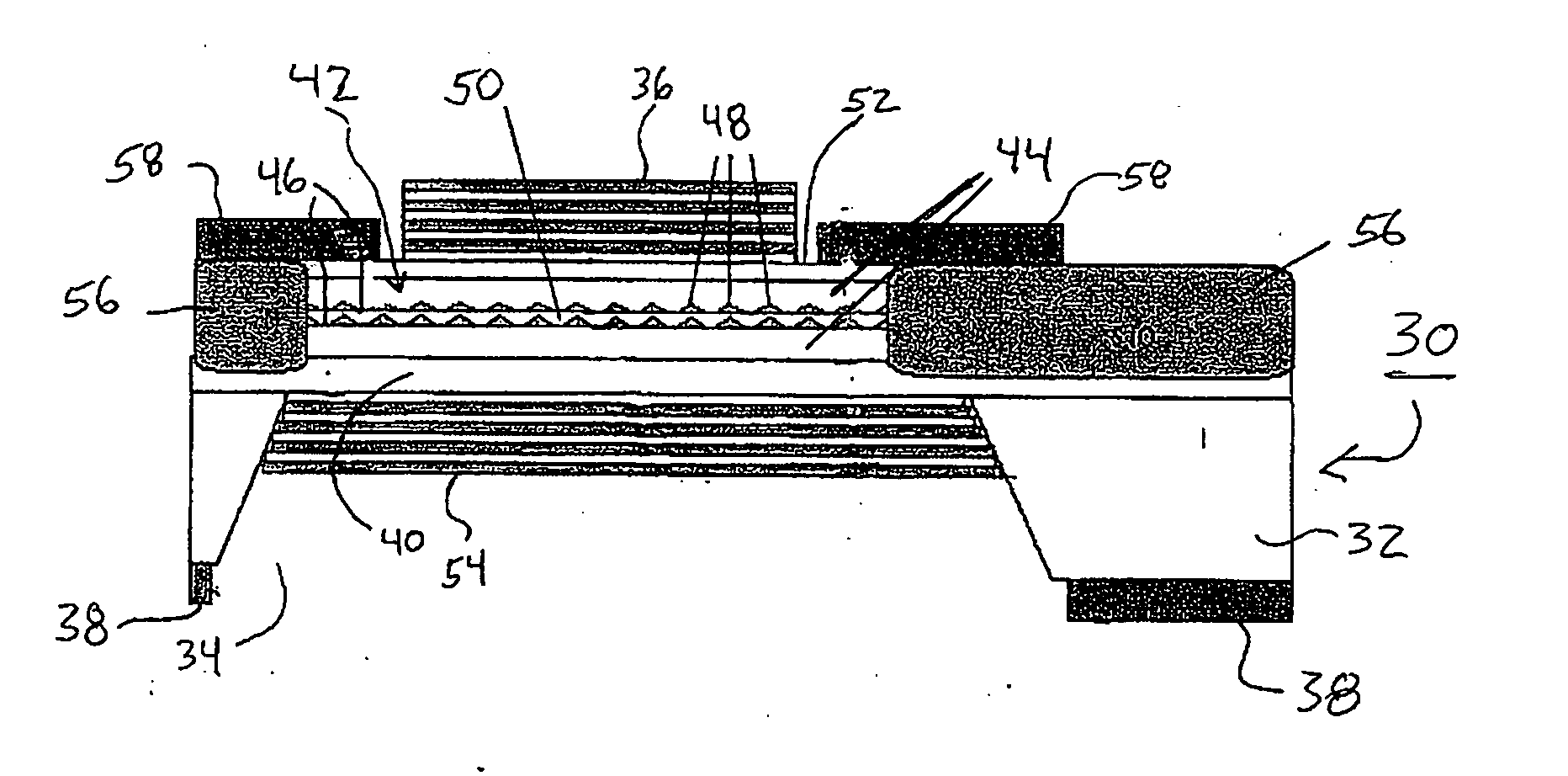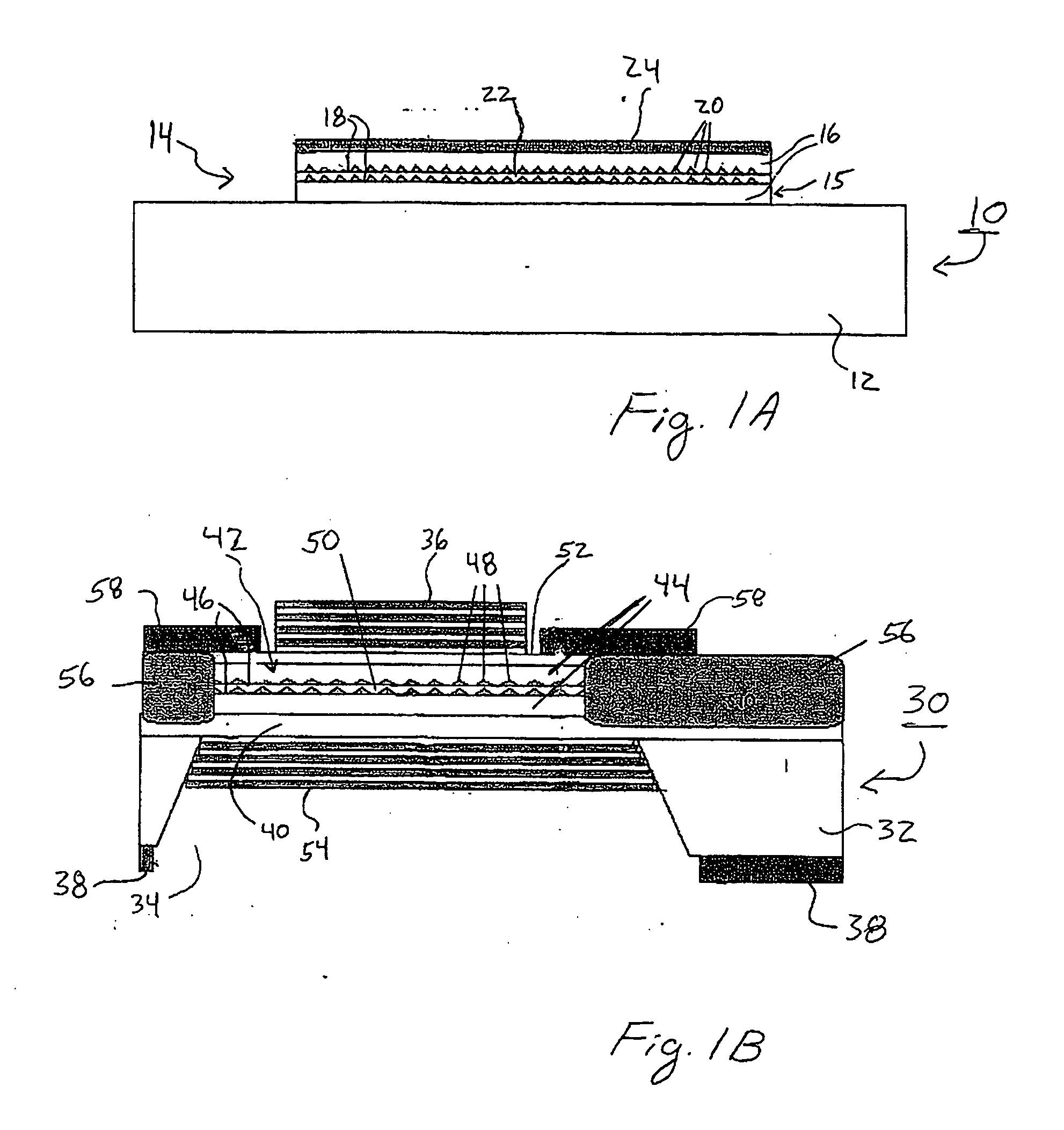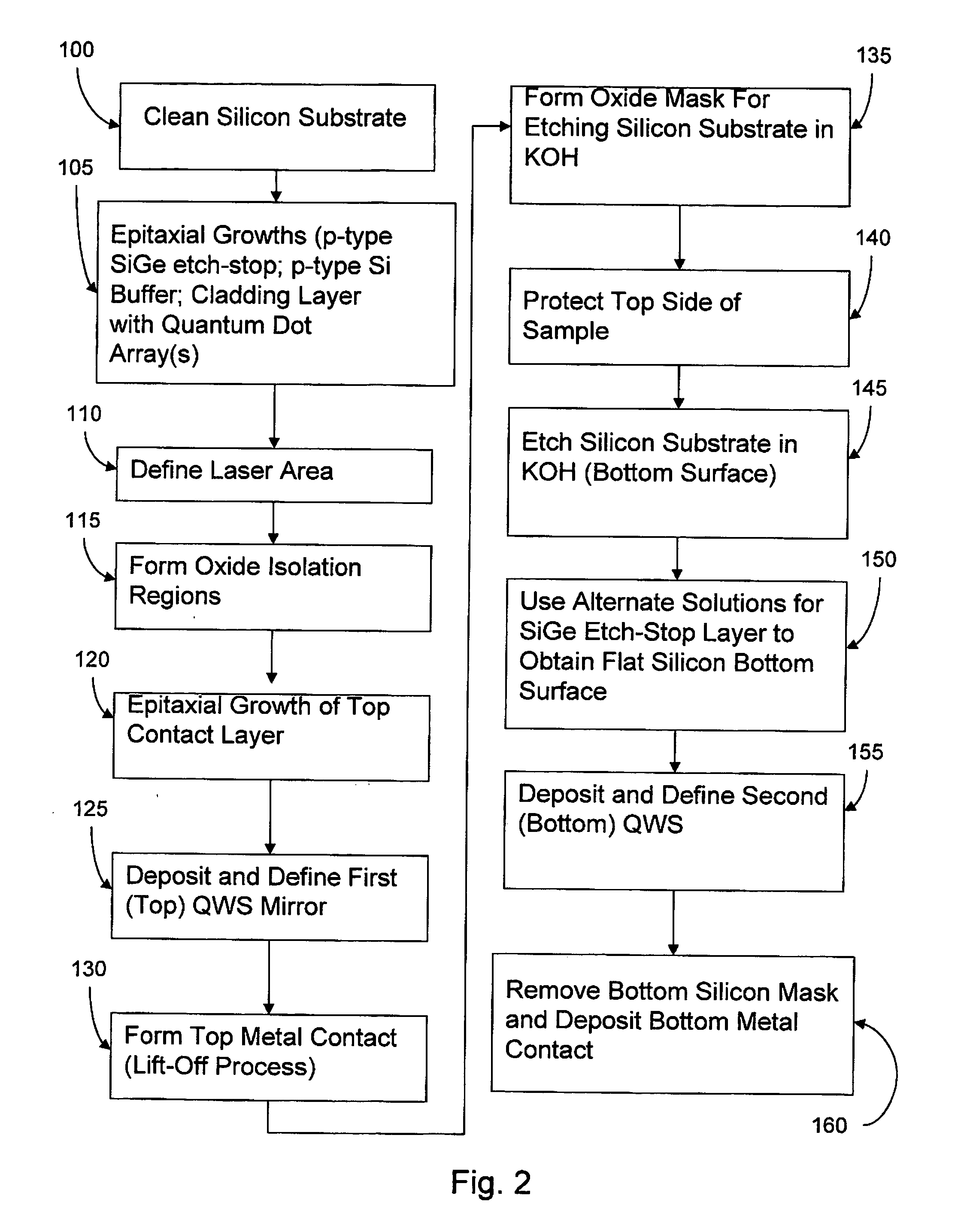Quantum dot based optoelectronic device and method of making same
a quantum dot and optoelectronic technology, applied in the field of optoelectronic devices and methods of making the same, can solve the problem of high density of dislocation in layers of sufficient thickness for optoelectronic applications, and achieve the effect of commercial longevity and good performance characteristics
- Summary
- Abstract
- Description
- Claims
- Application Information
AI Technical Summary
Benefits of technology
Problems solved by technology
Method used
Image
Examples
Embodiment Construction
[0016]FIG. 1A illustrates a schematic representation of an edge emitting laser 10. The edge emitting laser 10 includes a p-type silicon substrate 12. An optically active region 14 is formed on the upper surface of the p-type silicon substrate 12. The optically active region 14 includes a silicon (Si) or silicon germanium (SiGe) cladding layer 16 having disposed therein one or more layers of an array 18 of quantum dots 20 formed from a compound semiconductor material. A quantum dot 20 is a cluster of atoms whose dimensions are less than the quantum mechanical wavelength of an electron or “hole.” In one preferred aspect of the invention, the quantum dots 20 are formed from semiconductor materials with a direct energy band gap. Illustrative semiconductor materials for the quantum dots 20 include InGaAs, InGaSb, PbTe, CdTe, and CdSe. In one aspect, the quantum dots 20 are formed from a compound semiconductor material having a lattice mismatch with the underlying silicon buffer layer (fo...
PUM
 Login to View More
Login to View More Abstract
Description
Claims
Application Information
 Login to View More
Login to View More - R&D
- Intellectual Property
- Life Sciences
- Materials
- Tech Scout
- Unparalleled Data Quality
- Higher Quality Content
- 60% Fewer Hallucinations
Browse by: Latest US Patents, China's latest patents, Technical Efficacy Thesaurus, Application Domain, Technology Topic, Popular Technical Reports.
© 2025 PatSnap. All rights reserved.Legal|Privacy policy|Modern Slavery Act Transparency Statement|Sitemap|About US| Contact US: help@patsnap.com



